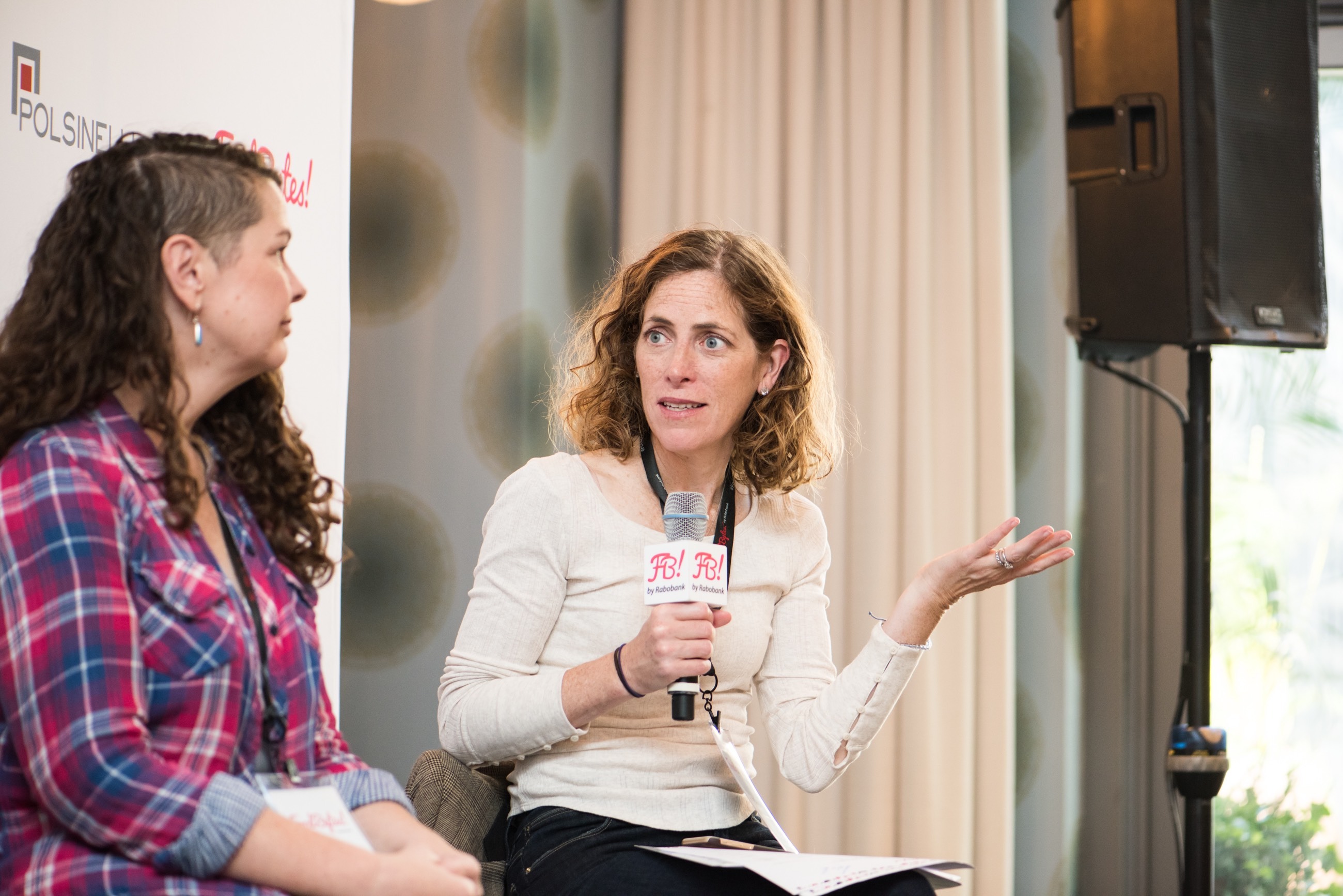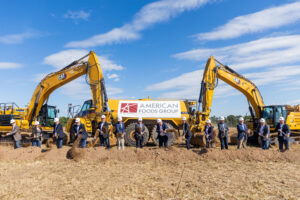At the end of 2018, Rabobank announced the expansion of its food and agriculture innovation team in North America with the appointment of Anne Greven as the global co-head of F&A Innovation.
Rabobank’s F&A Innovation team is responsible for FoodBytes! the bank’s startup pitch competition that takes place several times a year at different locations around the world. Also under F&A Innovation is TERRA, an accelerator program for growth-stage startups.
Greven is a Rabobank veteran having spent 15 years at the New York-based corporate bank building and leading key client-facing businesses for the bank. She has also been a mentor to startups participating in FoodBytes!, helping them explain their business models and fine-tune their pitch presentations prior to the events. Another co-head is expected to be announced later this year.
We caught up with Greven and Eline Boot, head of TERRA, to find out a bit more about the drivers behind the bank’s innovation platform.
Anne, what have been your first impressions since taking on this role?
Anne Greven: Even though I have been supportive of FoodBytes! and TERRA in other roles, the biggest surprise since moving into this role is how well known and how well recognized the platform is beyond the traditional banking world I’m familiar with and not just in the startup community, but among all our partners and stakeholders. They’re all hugely in awe of what we’ve built, and are quite engaged around making it an even better platform as we continue to invest and build on it.
What was your involvement before?
Greven: I was a mentor and advisor before and I’ve missed just two FoodBytes! events so I’ve been quite supportive of the initiative. I’ve been following the team over the last three years and the quality of our people is excellent so it’s fun to be now working more closely together
How have you seen the space change in terms of innovation trends?
Greven: Part of it is also what we’ve been seeking out and also how we find what we’re looking for. But we’re seeing a lot more around food waste as increasing numbers of people get involved. We also see things around the desire to have more sustainable products, which is particularly important in the CPG world and being attributed with that.
On tech side, it’s really about data management and that continues to evolve.
Eline Boot: There’s been a lot of incremental innovation but less present have been transformative technologies, although they’re gathering steam. One of my favorite transformative technologies in Apeel Sciences, which wasn’t around a few years ago but is transforming food waste across the supply chain with applications across the globe too. It can change how we look at waste at the farm level by preserving fruits all the way to Africa it’s much more transformative than what we’ve seen before.
What stage are the companies coming through TERRA stage-at?
Boot: We see companies at multiple stages come through but we find a way to funnel them into the platform that fits best. TERRA is quite strict about taking on companies that are ready for scale and commercialization. We work with industry leaders so the results would not be good if we took on earlier stage companies.
How many startups from FoodBytes! have gone through TERRA?
Boot: From cohort three that’s just started, three of the 17 came from the FoodBytes! platform, but I think the total number over the three years of TERRA is eight, and there are a number more that we’re looking at now. It’s the ultimate funnel so we make sure to keep track of them.
What are some of biggest challenges you see startups facing in FoodBytes! and TERRA?
Greven: At the earlier stages, proving a concept and being able to communicate it is a key challenge. In any startup you have to be solving a very unique problem in a unique way that’s actionable. There are also longer lead times in farm tech than in CPG as there’s a lot of research required so that’s a specific challenge.
Boot: The challenge is somewhat similar for startups in TERRA albeit at a different speed; the challenges for our startups are in development and how the startups make sure they use the platform they have and the audience and corporate connections to really capture a result. They need to focus on driving success and it takes up a lot of time, while at the same time they’re fundraising and finding that first customer.
How much does Rabo invest in TERRA companies?
Boot: We don’t take ownership as a bank; we don’t request equity. We can attract better startups if we don’t because we look for more mature companies. But some of our collaborators do invest in the companies such as Griffith Foods led a strategic investment round in ReGrained.
[Each TERRA cohort has corporate collaborators who pay to be involved. Griffith is one of eight corporates involved in cohort three.]
What is Rabobank’s strategy in building and operating this innovation platform?
Greven: It’s two-fold. We entered this really to build a greater understanding of new innovation and to identify the future of the clients of the bank. To be recognized as a leader in food and agriculture we need to understand what’s coming down the highway and speeding up behind us. Working with the people changing the landscape — the startup community – has given us insight that we can couple with our already robust research platform and all of that is positioning us as a knowledge bank. This differentiates us from other banks when serving our clients. Money is a commodity so we have to differentiate beyond that. We’ve taken a niche platform outside our home market of Holland and we see this as a key component in demonstrating our commitment by building out the preeminent force around innovation in food and agriculture.
Is there a direct KPI for your work in innovation?
Greven: So far, we’ve elevated our access to the C-Suite; we’re now speaking to many more CEOs are a result of our efforts here, specifically focused around innovation in their businesses. CEOs want to meet with us and that access has resulted in greater income to the bank by elevating our position in deals or even helping us to lead deals in capital markets. Or increased engagement around M&A advisory which is really is ideally the place we want to be going. I can’t say specifically which clients but very recently Nathalie Gibson, the head of FoodBytes! and the team were involved in making an introductory pitch to a global CPG company that we haven’t been able to access in the past because they wanted to know what the bank has to offer them and a key part of the discussion with the senior executive was around what we’re doing in innovation. And the follow up has resulted in a meeting with our M&A team, so our engagement with them increased two-fold as it didn’t exist before.
The Rabo Innovation team is all women, and while the split of founders presenting at FoodBytes! and TERRA is still weighted towards men overall along with the industry, you’ve had many female winners. Why is diversity important in food innovation?
Greven: The great thing about the Rabo network is that we are global and we want to reach startups from all parts of the world and we’re very mindful about that and get feedback a lot. In San Francisco in 2016 we had three female winners. The industry is not there yet in terms of diversity but we’re seeing more of it and we believe as an institution that it’s important to have a diverse frame and offering, not just in startups but also in representation of what’s happening around the globe. We want to be viewed as a global leader in food and agriculture and for that we need global representation.





